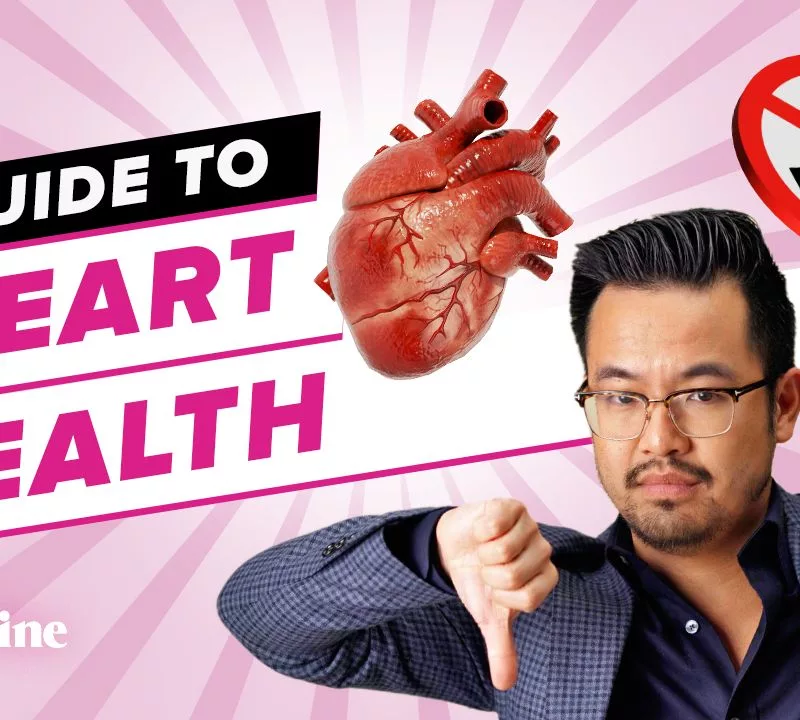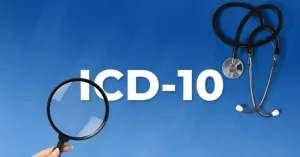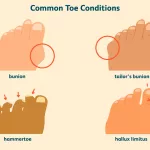If you’re wondering how to lower the odds of a heart attack or stroke, the answer isn’t hidden in a medical textbook—it’s right in the everyday choices you make. Below is a friendly, step‑by‑step guide packed with cardiologist advice, heart health tips, and science‑backed strategies you can start using right now.
Grab a cup of tea, settle in, and let’s walk through the checklist that can help you reduce heart risk for good.
Know Your Risk
Unchangeable Risks
First, let’s be honest: some factors are beyond our control. Age, sex, genetics, and family history fall into this category. While you can’t turn back the clock or swap genes, knowing these “fixed” risks helps you stay vigilant about the things you can influence.
Quick‑look Risk Table
| Risk Factor | Impact Level | What to Do |
|---|---|---|
| Age (45+ men, 55+ women) | High | Schedule regular check‑ups; monitor BP and cholesterol. |
| Male sex (higher early risk) | Medium | Stay active; keep cholesterol low. |
| Family history of early heart disease | High | Talk to your doctor about earlier screening. |
Modifiable Risks
The good news is that most of the biggest threats to your heart are within your reach. Smoking, high blood pressure, high cholesterol, excess weight, poor diet, inactivity, chronic stress, and inadequate sleep all fall into the “you can change this” bucket.
According to CDC’s guidance, up to 80 % of heart disease cases are preventable when you tackle these lifestyle factors head‑on.
How to Calculate Your Personal Risk Score
Grab a piece of paper (or a notes app) and jot down:
- Your age and sex
- Height, weight, and waist circumference (to get BMI)
- Most recent blood‑pressure reading
- Latest cholesterol panel (LDL, HDL, total)
- Fasting blood‑sugar or A1c if you have diabetes
Plug those numbers into an online risk calculator—many are free from reputable sources—to see a 10‑year heart‑attack risk percentage. Knowing the number can be a powerful motivator.
Lifestyle Habits
Exercise: Your Heart’s Best Friend
Exercise is the single most effective prescription a cardiologist can hand you—no pill required. The American Heart Association recommends at least 150 minutes of moderate aerobic activity (think brisk walking) or 75 minutes of vigorous activity (like jogging) each week, plus two strength‑training sessions.
Even if you’re a “weekend warrior,” recent data shows you still reap a protective benefit. A 2025 study published in the Journal of the American Heart Association found that people who cram all their exercise into Saturday and Sunday lower their risk almost as much as daily walkers.
Sample One‑Week Schedule
| Day | Activity | Duration |
|---|---|---|
| Monday | Brisk walk | 30 min |
| Tuesday | Body‑weight circuit (push‑ups, squats, planks) | 20 min |
| Wednesday | Cycling (moderate) | 30 min |
| Thursday | Yoga or stretching | 15 min |
| Friday | Fast walk + stair climbs | 30 min |
| Saturday | Hiking or jogging | 45 min |
| Sunday | Rest + light walk | 15 min |
Start where you are. If 30 minutes feels daunting, try three 10‑minute “movement breaks” throughout the day. Your heart will thank you.
Anti‑Inflammatory, Heart‑Healthy Diet
Food is fuel, but not all fuel is created equal. A plant‑forward, low‑saturated‑fat diet can lower LDL (“bad”) cholesterol, reduce blood pressure, and tame inflammation—all key components of heart disease prevention.
Here’s a quick “plate” rule: half your plate should be colorful veggies and fruits, a quarter whole grains or legumes, and the remaining quarter lean protein (fish, poultry, or beans). Add a drizzle of olive oil and a sprinkle of nuts for healthy fats.
The American Heart Association’s “Essential 8” framework (2025) lists these eight lifestyle pillars, and diet is #2— proof that nutrition truly sits at the heart of prevention.
Foods to Embrace
- Fresh berries, leafy greens, and cruciferous veggies (think broccoli)
- Whole‑grain oats, quinoa, brown rice
- Legumes—lentils, chickpeas, black beans
- Fatty fish (salmon, mackerel) for omega‑3s
- Unsalted nuts and seeds
- Low‑fat dairy or fortified plant milks
Foods to Limit
- Saturated and trans fats (butter, palm oil, processed snacks)
- Added sugars—sodas, candy, sugary cereals
- Excess sodium (aim < 2,300 mg per day)
- Highly processed meats (bacon, hot dogs)
Need inspiration? The CDC’s Nutrition, Physical Activity, and Obesity website offers seasonal, heart‑healthy recipes you can copy‑paste into your grocery list.
Quit Smoking & Avoid All Tobacco
Smoking is the single biggest preventable cause of heart disease. The damage starts within minutes—your blood vessels constrict, blood pressure spikes, and plaque formation accelerates.
Good news: the benefits of quitting appear almost immediately. Within 24 hours, heart‑attack risk drops, and after a year, it’s roughly half that of a continuing smoker. Consider enrolling in a cessation program, trying nicotine‑replacement therapy, or speaking with your doctor about prescription aids. Remember, you’re not alone—millions have successfully quit, and you can too.
Weight Management & Body‑Mass Index
Carrying extra pounds is like adding extra weight to a sled you have to pull uphill every day—your heart works harder, blood pressure rises, and cholesterol can go haywire.
Aim for a body‑mass index (BMI) between 18.5 and 24.9. If you’re above that range, a modest 5‑10 % weight loss often yields a dramatic improvement in blood‑pressure and cholesterol numbers.
5‑Step Weight‑Loss Plan
- Track what you eat for a week (apps make this painless).
- Replace sugary drinks with water or unsweetened tea.
- Increase daily steps—2,500 steps is a decent baseline; 10,000 steps is a gold standard.
- Add a strength session twice a week to preserve lean muscle.
- Set realistic weekly goals (1 lb or 0.5 kg loss). Celebrate each victory.
Sleep & Stress: The Hidden Culprits
Sleep is the heart’s nightly maintenance crew. Skipping those 7–9 hours can raise blood pressure, increase inflammation, and even promote unhealthy cravings.
Stress triggers the release of cortisol, a hormone that can raise heart‑rate and squeeze arteries over time. Simple habits—deep‑breathing for five minutes, a short walk, or listening to a favorite song—can lower stress hormones and protect your ticker.
Medical Check‑ups & Preventive Treatments
Screening Frequency
Even if you feel fine, silent risk factors can hide in the background. Here’s a quick cheat sheet:
- Cholesterol: Test every 4–6 years, sooner if you have a family history.
- Blood pressure: Check at least every 2 years; more often if it’s borderline.
- Blood sugar: Fasted glucose or A1c annually if you’re overweight or have a family history of diabetes.
When Medication Is Needed
If lifestyle changes alone aren’t enough, your doctor may suggest statins, ACE inhibitors, or low‑dose aspirin (for certain age groups). The decision is individualized—think of it as adding a safety net to your prevention plan.
Vaccinations & Other Preventive Services
Flu shots aren’t just about avoiding a cold; recent research links severe flu infections to an increased risk of heart attacks in the weeks following illness. Stay up‑to‑date on flu and COVID‑19 vaccines to keep your cardiovascular system protected.
Real‑World Stories & Expert Tips
John’s 12‑Month Turnaround
John, a 52‑year‑old accountant, discovered his 10‑year heart‑attack risk was 22 % during a routine exam. He teamed up with his cardiologist, added 30 minutes of brisk walking five days a week, swapped his steak‑heavy dinners for Mediterranean‑style meals, and began a modest statin.
One year later, his risk dropped to 9 %. “I never thought a simple walk could change the numbers that much,” he says, laughing. His story illustrates how incremental changes compound into big health wins.
Cardiologist’s Top 10 Checklist
According to a 2025 interview with a board‑certified cardiologist for the Washington Post, the following ten actions are the most powerful for heart disease prevention:
- Do both aerobic and resistance exercise.
- Follow an anti‑inflammatory, plant‑focused diet.
- Quit smoking and avoid all tobacco.
- Maintain a healthy weight.
- Control blood pressure.
- Keep cholesterol in check.
- Watch your sugar intake.
- Prioritize 7–9 hours of sleep.
- Manage stress with relaxation techniques.
- Stay up‑to‑date on preventive screenings.
Remember, you don’t have to tackle all ten at once—pick one or two, master them, then move on.
Tools, Apps & Resources to Keep You on Track
Free Calculators
The CDC offers an online BMI calculator and a “Heart Age” tool that turns your numbers into a simple age‑equivalent. Try it and see where you stand.
Recommended Apps
- MyFitnessPal – tracks meals and nutrients.
- Strava – logs walks, runs, and bike rides.
- Heart‑Check – records blood‑pressure and glucose readings.
Find Local Support
The American Heart Association’s program locator can help you locate community exercise classes, heart‑health workshops, and smoking‑cessation groups near you.
Conclusion
Preventing heart disease isn’t a mysterious, one‑size‑fits‑all formula. It’s a collection of practical, everyday choices—moving your body, filling your plate with colorful, nutrient‑dense foods, staying smoke‑free, keeping an eye on your numbers, and giving your body the rest it deserves. Start small, celebrate progress, and remember: every healthy habit you add is a step toward a longer, happier life.
What’s the first change you’ll make today? Share your plan in the comments, ask questions, or simply let us know how you’re feeling. We’re all in this together, and your story might just inspire someone else to take the first step toward a stronger heart.
























Leave a Reply
You must be logged in to post a comment.